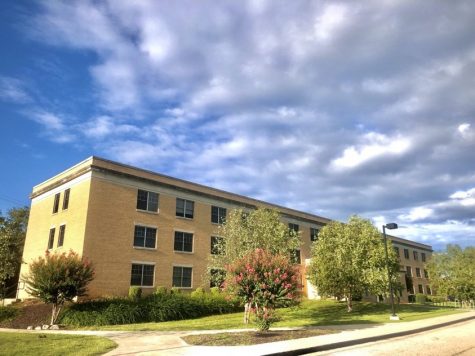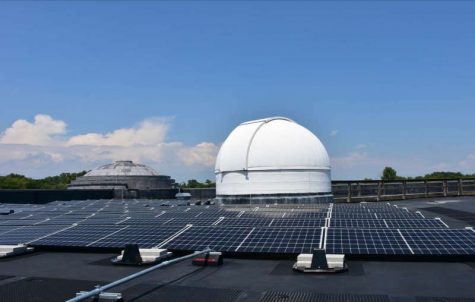The Corporation of Shepherdstown recently implemented a 5% water rate increase, but that won’t stop Shepherd University’s environmental efficiency initiatives, said university Vice President of Finance and Administration Pamela Stevens.
The increase, unanimously passed by the Shepherdstown Town Council on Jan. 12, didn’t take effect until August this year. Although the added cost will raise Shepherd’s Facilities Management budget by $15,000, the university’s long-term vision is to reduce cost and energy consumption.
“We’re engaging with a guaranteed energy-savings contractor, CMTA, and they’re going to launch multiple capital projects across campus that will save money for the school,” Stevens said. “The contract guarantees savings sufficient to meet the debt service requirement annually for these projects, and the contractor will pay any shortage during the term of the financing period.”
Some of these savings areas will be realized quickly.
For example, some of the water meters are oversized for the school’s average use level. The Corporation of Shepherdstown has agreed to resize the water meters to accommodate this savings. The water department will pay for the new meters, and Shepherd will pay for replacement.
“[The decision to install oversized meters] was probably made anticipating major construction and population growth, which would require additional demand,” Stevens said.
Shelley Shaffer, Shepherd University’s Physical Plant Manager, provided pertinent water usage records.
For fiscal years 2019, 2020, and 2021, Shepherd University’s water costs averaged $480,966 per year. A costly water leak in FY19 raised that year’s bill by $60,000, but the Covid-19 pandemic lowered the water bills in FY20 and FY21 by $180,000.
Although it’s hard to control for the variables of life and infrastructure costs in a historic town, CMTA has already identified further savings opportunities.
Shepherd will save $18,000 per year by turning off the water for the unused east-side dormitories, Kenamond and Turner Halls.

This budget planning is essential for Shepherd to remain financially secure. However, the environmental impact of the school is always in the foreground of university planning.
“Students may have noticed the solar panels on the roof of the Scarborough Library. That was grant funded,” Stevens said. “Additionally, the boilers in the Byrd Science Center are now propane fueled, which provides new energy efficiencies for that building.”

More efficient HVAC systems will be installed in select buildings, and LED lighting will replace expensive, energy-inefficient fluorescent bulbs across campus as well.
As Shepherd eyes the financial implications of an increased water rate, Ms. Stevens looks forward to Shepherd’s continued success with the CMTA partnership.
“The university is remaining cautious, but we are making progress in improving Shepherd’s financial stability,” she said.

Leave a Reply